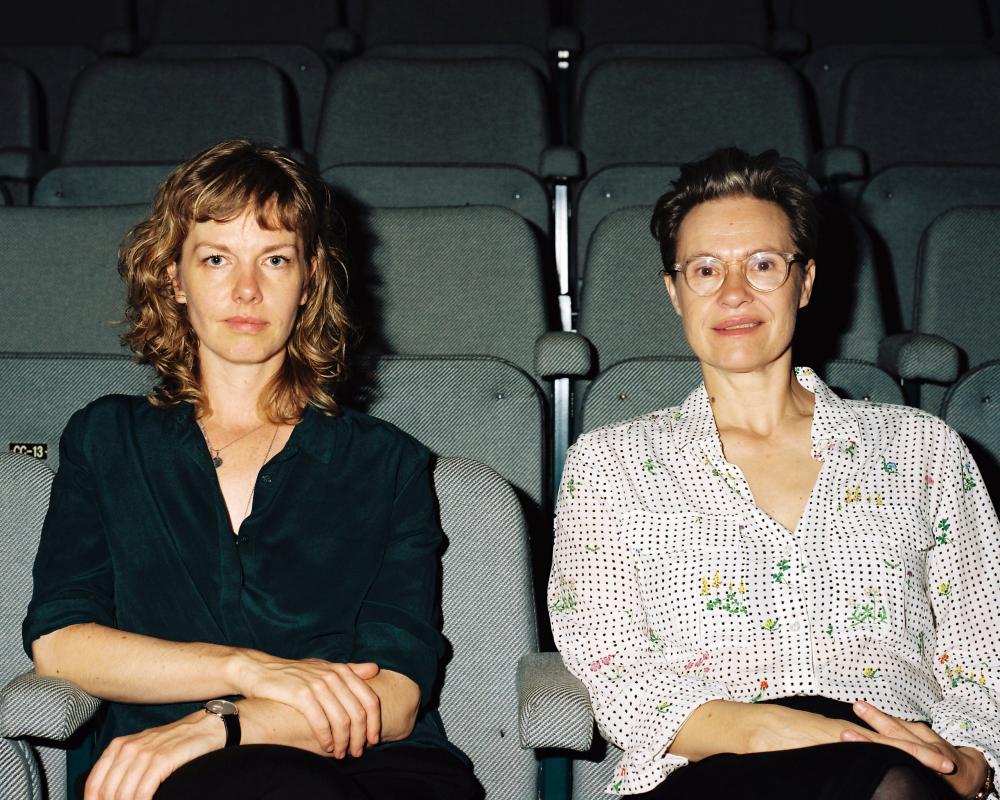HOW TO BE MANY?
The new artistic and general coordinators Agnes Quackels and Barbara Van Lindt have arrived at Kaaitheater with the question “How to be Many?”. They are working, discovering the centre and exploring how they can make Kaaitheater a many-voiced theatre. In this conversation, they lift a corner of the veil.
In tandem
Agnes: A year ago, we both decided to stop the jobs we were doing, but we didn’t have a plan about what to do next. We had been following one another’s work for a long time and we had had many conversations about what an arts institution could be. And then we were offered the opportunity to put those ideas into practice.
Barbara: How to be Many? brings together questions that are currently being raised both in society and in the arts world: how can we become inclusive from within our factual diversity? How does that translate into ways of being managers and making artistic choices?
Many-voiced plans
B: We have only just started, and the sudden budget cuts require difficult decisions in the context of which we must try to find balance and equality. The cornerstones of our original plans are our guiding principles. Starting from the title How to be Many?, we are focussing on continuity, more intensive audience development, the introduction of open source programming, and cultivating a mentality of a learning institution.
A: Through continuity we seek to preserve the responsibility this theatre has towards the artists and the field. You can’t simply disregard the developments in the Flemish landscape over the past thirty years. They in part determine how we currently conceive of the performing arts, and how we create them.
A: We will give 20% of our budgets and our programming to others, and especially to people and organizations that tend not to be well-represented. We discovered this idea of ‘open source’ at the Centre of Contemporary Arts in Glasgow, where the organization (infrastructure, expertise and staff) are offered as a toolbox to realize the programme of others. The first conversations with organizations in Brussels have already started.
B: Our relationship with our audiences is based in the concept ‘sense of entitlement’: who feels entitled to speak? How can we ensure that more people feel prepared to engage with contemporary performing arts? We subscribe to Frie Leysen’s mantra ‘never underestimate your audience’ and add the following: realize that a potential audience may as it were underestimate itself – due to the thresholds that is experiences.
A: Our modus operandi is that of a learning institute. We learn from existing practices based on our desire to contribute to a future that is feminist, intersectional and inclusive. Whether it is CCA Glasgow, Zinnema here in Brussels, the Zurich Gessnerallee (a three-member team of female directors) or Primeira Vez by the Portuguese Teatro Nacional D. Maria II.
Learning from experience
A: We are also shaped by our past experiences, given that we worked in different domains in the arts. I myself worked in various positions within the sector, including in a production office and as the artistic director of an arts centre. What I take with me is the insight into how art is produced: what are the working conditions of the artist?
B: What I’m bringing to Kaaitheater is the experience that there is no co-ownership without co-authorship. If one wants an arts centre like Kaaitheater to be sustained by different people – the artists as well as the audience and members of staff – you have to let them contribute to writing Kaaitheater’s story.
photo © Catherine Lemblé
Agnes Quackels & Barbara Van Lindt in conversation with Eva Decaesstecker (November 2019, Kaaitheater)
